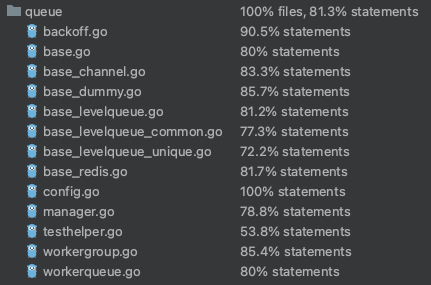mirror of
https://codeberg.org/forgejo/forgejo.git
synced 2024-12-05 04:37:54 +01:00
# ⚠️ Breaking Many deprecated queue config options are removed (actually, they should have been removed in 1.18/1.19). If you see the fatal message when starting Gitea: "Please update your app.ini to remove deprecated config options", please follow the error messages to remove these options from your app.ini. Example: ``` 2023/05/06 19:39:22 [E] Removed queue option: `[indexer].ISSUE_INDEXER_QUEUE_TYPE`. Use new options in `[queue.issue_indexer]` 2023/05/06 19:39:22 [E] Removed queue option: `[indexer].UPDATE_BUFFER_LEN`. Use new options in `[queue.issue_indexer]` 2023/05/06 19:39:22 [F] Please update your app.ini to remove deprecated config options ``` Many options in `[queue]` are are dropped, including: `WRAP_IF_NECESSARY`, `MAX_ATTEMPTS`, `TIMEOUT`, `WORKERS`, `BLOCK_TIMEOUT`, `BOOST_TIMEOUT`, `BOOST_WORKERS`, they can be removed from app.ini. # The problem The old queue package has some legacy problems: * complexity: I doubt few people could tell how it works. * maintainability: Too many channels and mutex/cond are mixed together, too many different structs/interfaces depends each other. * stability: due to the complexity & maintainability, sometimes there are strange bugs and difficult to debug, and some code doesn't have test (indeed some code is difficult to test because a lot of things are mixed together). * general applicability: although it is called "queue", its behavior is not a well-known queue. * scalability: it doesn't seem easy to make it work with a cluster without breaking its behaviors. It came from some very old code to "avoid breaking", however, its technical debt is too heavy now. It's a good time to introduce a better "queue" package. # The new queue package It keeps using old config and concept as much as possible. * It only contains two major kinds of concepts: * The "base queue": channel, levelqueue, redis * They have the same abstraction, the same interface, and they are tested by the same testing code. * The "WokerPoolQueue", it uses the "base queue" to provide "worker pool" function, calls the "handler" to process the data in the base queue. * The new code doesn't do "PushBack" * Think about a queue with many workers, the "PushBack" can't guarantee the order for re-queued unhandled items, so in new code it just does "normal push" * The new code doesn't do "pause/resume" * The "pause/resume" was designed to handle some handler's failure: eg: document indexer (elasticsearch) is down * If a queue is paused for long time, either the producers blocks or the new items are dropped. * The new code doesn't do such "pause/resume" trick, it's not a common queue's behavior and it doesn't help much. * If there are unhandled items, the "push" function just blocks for a few seconds and then re-queue them and retry. * The new code doesn't do "worker booster" * Gitea's queue's handlers are light functions, the cost is only the go-routine, so it doesn't make sense to "boost" them. * The new code only use "max worker number" to limit the concurrent workers. * The new "Push" never blocks forever * Instead of creating more and more blocking goroutines, return an error is more friendly to the server and to the end user. There are more details in code comments: eg: the "Flush" problem, the strange "code.index" hanging problem, the "immediate" queue problem. Almost ready for review. TODO: * [x] add some necessary comments during review * [x] add some more tests if necessary * [x] update documents and config options * [x] test max worker / active worker * [x] re-run the CI tasks to see whether any test is flaky * [x] improve the `handleOldLengthConfiguration` to provide more friendly messages * [x] fine tune default config values (eg: length?) ## Code coverage: 
40 lines
809 B
Go
40 lines
809 B
Go
// Copyright 2019 The Gitea Authors. All rights reserved.
|
|
// SPDX-License-Identifier: MIT
|
|
|
|
package queue
|
|
|
|
import (
|
|
"fmt"
|
|
"sync"
|
|
)
|
|
|
|
// testStateRecorder is used to record state changes for testing, to help debug async behaviors
|
|
type testStateRecorder struct {
|
|
records []string
|
|
mu sync.Mutex
|
|
}
|
|
|
|
var testRecorder = &testStateRecorder{}
|
|
|
|
func (t *testStateRecorder) Record(format string, args ...any) {
|
|
t.mu.Lock()
|
|
t.records = append(t.records, fmt.Sprintf(format, args...))
|
|
if len(t.records) > 1000 {
|
|
t.records = t.records[len(t.records)-1000:]
|
|
}
|
|
t.mu.Unlock()
|
|
}
|
|
|
|
func (t *testStateRecorder) Records() []string {
|
|
t.mu.Lock()
|
|
r := make([]string, len(t.records))
|
|
copy(r, t.records)
|
|
t.mu.Unlock()
|
|
return r
|
|
}
|
|
|
|
func (t *testStateRecorder) Reset() {
|
|
t.mu.Lock()
|
|
t.records = nil
|
|
t.mu.Unlock()
|
|
}
|